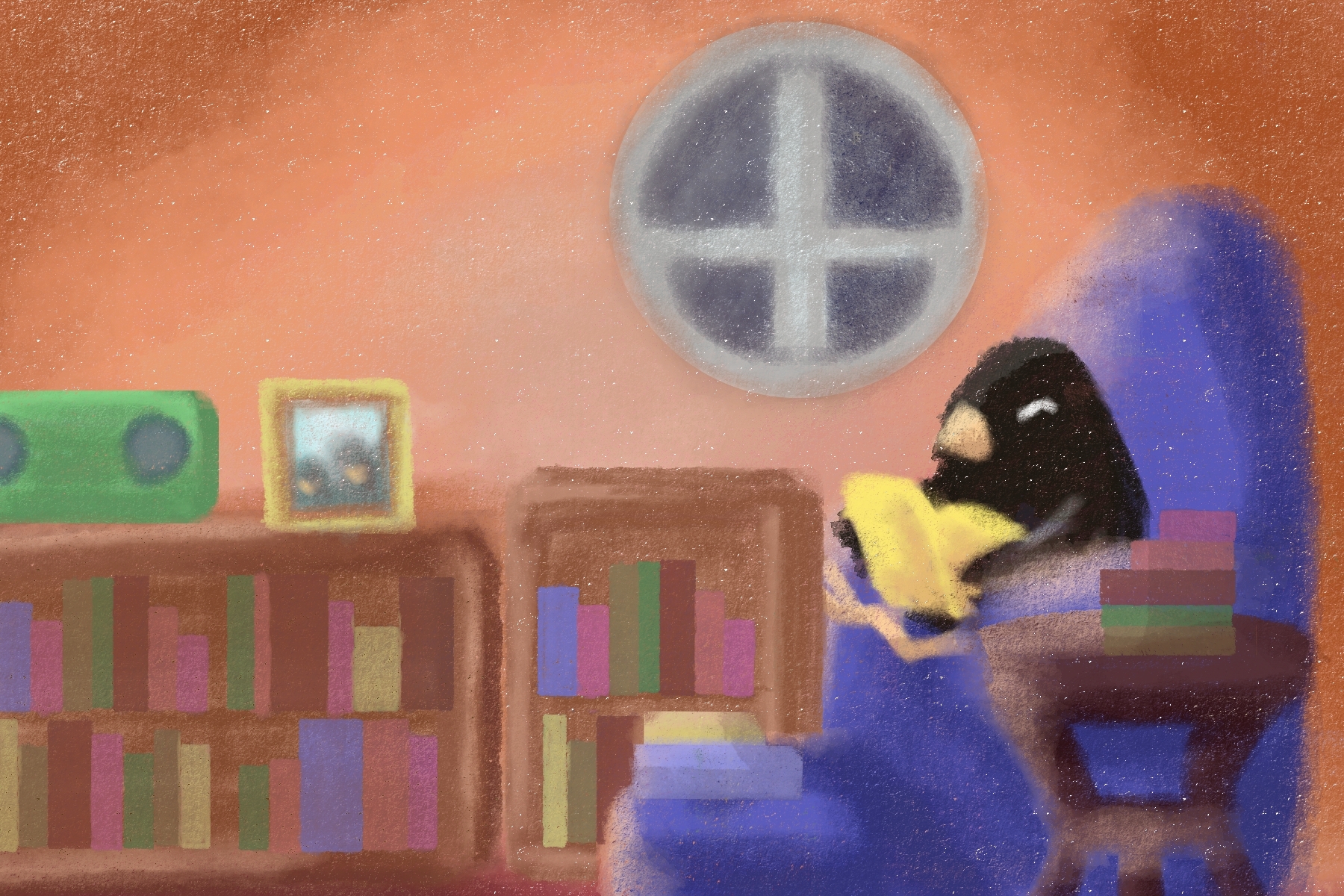I left a lot of things in my dorm when I rushed back home at the dawn of the pandemic — clothes, food, important papers, but perhaps most tragically, books. Now, I don’t mind never seeing my textbooks again, but there were some gems there that I brought with me from home. I had them for the express purpose of rereading them when life got hard and I needed something comforting. Fast forward a few months and we’re in the middle of a global crisis, so you’ll understand why I’m missing those special books dearly.
Turns out, I’m not the only one. Recently, people across the globe have been rereading beloved books in quarantine, reveling in the familiarity and comfort they bring. A few months ago, when it became clear we were going to be confined to our homes for longer than any of us hoped, people were bent on using this time to be indiscriminately productive — finish that novel or screenplay, or 12, or learn a new language.
It also became chic to systematically work your way through your to-be-read list, reading all those books you never had time to read before, so that you stayed at peak productivity despite the fact that you couldn’t go to work or school.
But slowly, people began to realize that they couldn’t apply the quintessentially American ethos of constant productivity to such an unprecedented time. Whether we like it or not, this is forcing us to slow down. Especially for those of us who moved back in with our parents, it’s forcing us to make the most of everything the world of our childhood bedrooms has to offer, One Direction posters and all.
For me, like for many others, this included all the books I loved as a kid and forgot about as I grew older. I cracked open my old, battered copy of “Carry On” by Rainbow Rowell the other day, cringing at all my “annotations” in the margins (they were mostly just hearts and smiley faces), but there was something about rereading those words and visualizing those scenes that brought me back to center. It felt a bit like I was coming home.
https://www.instagram.com/p/B-fZ1SSDYqO/?utm_source=ig_web_copy_link
Comfort is one of the main reasons that people are drawn to reread old favorites during a time like this. An article from the Washington Post explained how everything we took for granted before, even the most fundamental daily actions, has changed, and it’s tiring. We crave what we know, what we can control, when we don’t know anything about the world around us anymore. We’ve been de-anchored, and old books offer us a place to regain our footing.
Rereading books isn’t just about looking at old texts with new eyes to learn something unique and tangible that we missed before. It also gives us the opportunity to revisit a place we hold close to our hearts, a place that once treated us kindly and brought us peace.
You don’t always have to obtain something marketable when you reread books, and that’s not why people are doing it now. But you do see it in a new way, because your memories are superimposed on the story itself. Like Wordsworth visiting Tintern Abbey after all those years, we, too, can reopen an old novel and commune amiably with our old selves.
People are enjoying knowing what’s going to happen in the books they read, since they don’t know what’s happening around them. According to the BBC, on the whole, we’re turning to books with a “strong sense of place and … traditional storytelling structure,” choosing to compensate for the fact that neither currently exists in the real world.
This isn’t the first time publishers and booksellers are seeing interesting patterns in reading — after 9/11, the escapist and all-consuming chick-lit genre emerged in earnest, and after the 2008 recession, historical fiction swept the market because of the certainty imbued in the genre.
And if a reader is looking for certainty, they might forgo books altogether to dive into fanfiction. Archive Of Our Own, the wildly popular fanfiction site, experienced a growth of almost 35 million more page views than usual in the span of two weeks. It makes sense — characters from beloved books are as appealing as the books themselves, and if a reader is looking for romantic escapism with a healthy dose of wish fulfillment, there’s no better place.
Tragedy and global confusion understandably limit people’s ability to take in new information, even if it’s information from that book you’ve been meaning to read for a year. People’s mental thresholds are already being pushed just by the everyday “new abnormal,” and spending time poring over an unfamiliar book that has the potential to depress you further does not sound appealing.
Forgetting about all the worries that are plaguing (no pun intended) the world right now isn’t the only reason to return to escapist literature. Returning to an old, beloved story several years later allows you to notice things you wouldn’t necessarily notice if you weren’t constantly thinking about illness and the fact that everyone’s lives have been upended.
I reread Leigh Bardugo’s “Six of Crows” duology last week, and I was astounded by the cherished characters’ absolutely barbaric plan to (spoiler!) fake a deadly, fast-spreading plague outbreak in their city. Of course, we’re not supposed to feel bad for all the oppressive nobles and wrathful merchants who believe it’s real, but their plan stands out in a way it never did before.
https://www.instagram.com/p/BQdvydTBR95/?utm_source=ig_web_copy_link
Similarly, Laurie Santos, Yale professor and pioneer of Yale’s Science of Well-Being class, said that she was rereading “The Stoic Challenge” and saw it through a contemporary lens. She says it was the “perfect call to arms for a tough time like we’re experiencing, but it gives you hope” as well.
In the same vein, an article from Broadsheet cites author Laura McPhee-Browne, who has “been re-reading poems that make [her] feel like the world is still here, even though over the last few weeks it feels like everything has disappeared.”
Old books and well-loved characters give us room to breathe and relax in a time where the foreseeable future has shrunk to the size of a pinhead. They force us to slow down, acknowledge the stresses the global situation has put upon us and to realize that nothing is forcing us to keep churning out marketable material.
We are allowed, perhaps now more than ever, to sink into the comfort of a world we know and love, exchanging smiles with our past selves, who sit there rereading with us, as we slowly build up hope that the world we live in will return to us soon.

















